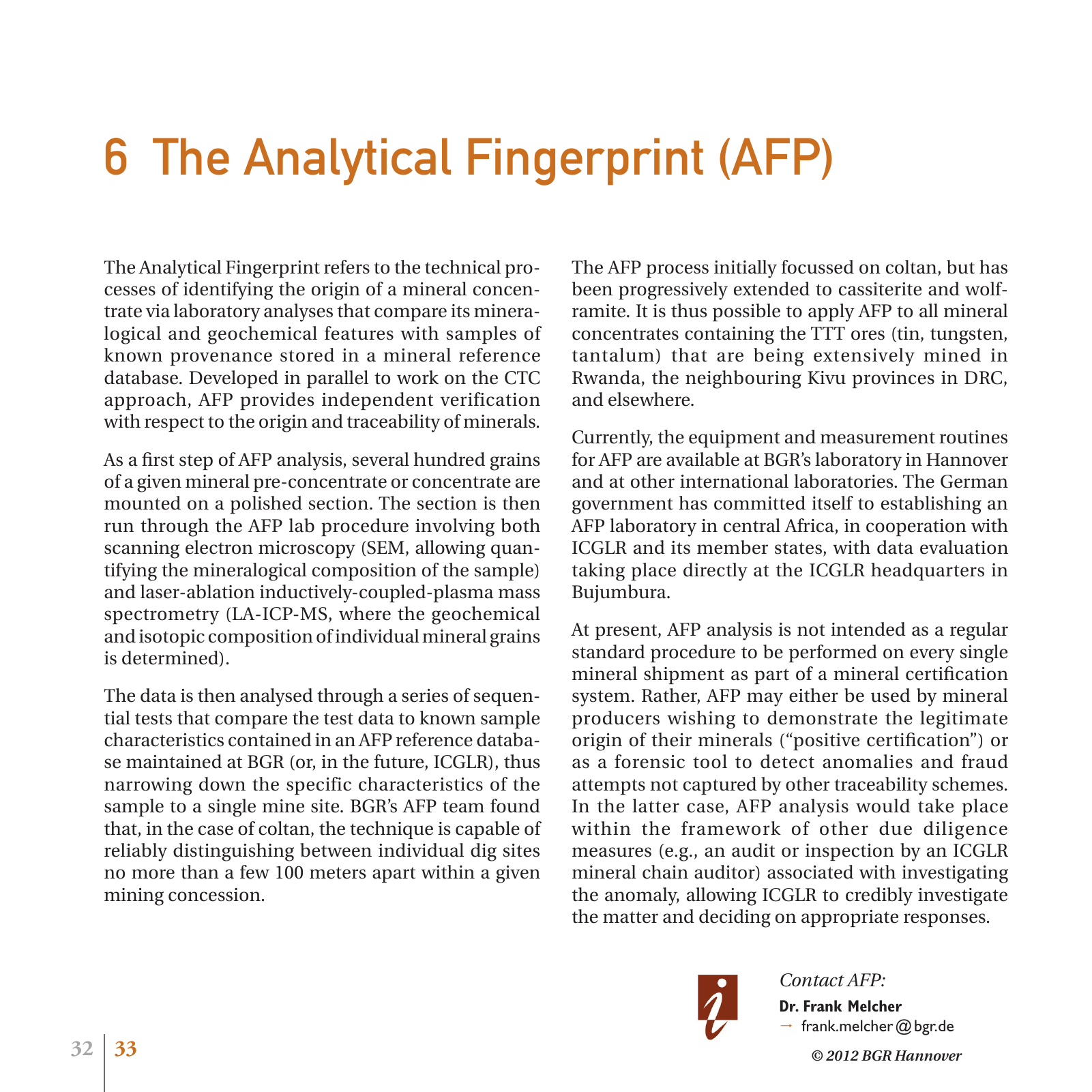BGR Support for Mineral Certification Seite 35
Hinweis: Dies ist eine maschinenlesbare No-Flash Ansicht.Klicken Sie hier um zur Online-Version zu gelangen.
Inhalt
33 The Analytical Fingerprint refers to the technical pro cesses of identifying the origin of a mineral concen trate via laboratory analyses that compare its minera logical and geochemical features with samples of known provenance stored in a mineral reference database Developed in parallel to work on the CTC approach AFP provides independent verification with respect to the origin and traceability of minerals As a first step of AFP analysis several hundred grains of a given mineral pre concentrate or concentrate are mounted on a polished section The section is then run through the AFP lab procedure involving both scanning electron microscopy SEM allowing quan tifying the mineralogical composition of the sample and laser ablation inductively coupled plasma mass spectrometry LA ICP MS where the geochemical and isotopic composition of individual mineral grains is determined The data is then analysed through a series of sequen tial tests that compare the test data to known sample characteristics contained in an AFP reference databa se maintained at BGR or in the future ICGLR thus narrowing down the specific characteristics of the sample to a single mine site BGR s AFP team found that in the case of coltan the technique is capable of reliably distinguishing between individual dig sites no more than a few 100 meters apart within a given mining concession 6 The Analytical Fingerprint AFP The AFP process initially focussed on coltan but has been progressively extended to cassiterite and wolf ramite It is thus possible to apply AFP to all mineral concentrates containing the TTT ores tin tungsten tantalum that are being extensively mined in Rwanda the neighbouring Kivu provinces in DRC and elsewhere Currently the equipment and measurement routines for AFP are available at BGR s laboratory in Hannover and at other international laboratories The German government has committed itself to establishing an AFP laboratory in central Africa in cooperation with ICGLR and its member states with data evaluation taking place directly at the ICGLR headquarters in Bujumbura At present AFP analysis is not intended as a regular standard procedure to be performed on every single mineral shipment as part of a mineral certification system Rather AFP may either be used by mineral producers wishing to demonstrate the legitimate origin of their minerals positive certification or as a forensic tool to detect anomalies and fraud attempts not captured by other traceability schemes In the latter case AFP analysis would take place within the framework of other due diligence measures e g an audit or inspection by an ICGLR mineral chain auditor associated with investigating the anomaly allowing ICGLR to credibly investigate the matter and deciding on appropriate responses Contact AFP Dr Frank Melcher frank melcher bgr de 32 2012 BGR Hannover 2012 BGR Hannover
